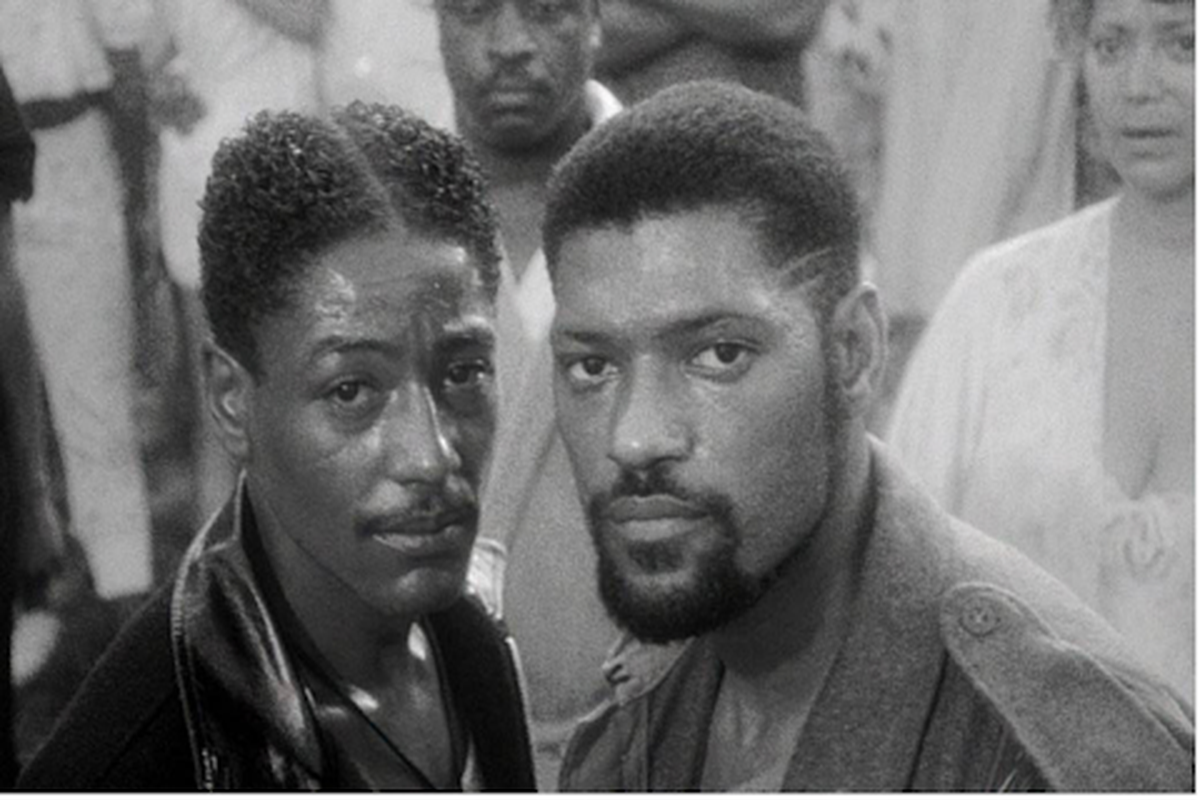The 1988 iconic closing scene of Spike Lee’s classic “School Daze” is a cautionary call to action with as much relevance today as it had 36 years ago.
Students and faculty of the fictitious Mission College awaken at dawn to the unapologetic social and political activist Vaughn “Dap” Dunlap frantically running from residence hall to residence hall yelling “Wake Up!” while rousing his contemporaries out of deep sleep. The toll of a bell resounds across the yard as the haze of the day’s sunrise descends upon the slumbering campus. Sweating and out of breath, Dap beckons his classmates and university leaders, who, in their pajamas, meander out of their living quarters to congregate on the quad in the middle of the yard. He and his ideological nemesis, Julian “Dean Big Brother Almighty” Eaves find each other in the crowd. Julian walks through the befuddled mass of people to the front, where Dap is standing. They meet face to face, each one staring earnestly into the eyes of the other, as they come to terms with all the social, cultural, and political divergences that have erupted between them throughout the movie. In this last cinematic sequence, the rivals turn and stare into the camera, to an unseen audience. Shoulder to shoulder they stand, weary and exhausted in front of the assembly of Mission College students and faculty, as Dap makes one last appeal: “Please, wake up.” An alarm clock sounds, and the frame of the two leaders fades to black and white.
There is a saying that goes “you hunt where there are ducks.” The fear of continuing disenfranchisement, a return to subjugation, and abject poverty have been the Achilles heel of Black Americans since 1863, as we have tried to balance hope, advancement, and our survival with how we circumnavigate America’s promise of democracy. In 2024, with a SCOTUS ruling of immunity for a president, Americans, collectively, are worried about the state of the union this election cycle. A government run by a unitary executive is as dangerous today as it has ever been, and the threat of an imperial state with any leader who has been given immunity positions the entire country in a state of dangerous vulnerability. Black people aspired to freedom even when “no refuge could save the hireling and slave from the terror of flight or the gloom of the grave.” Our predecessors knew what the potential of liberty would do for them and their children’s children. Today, in 2024, we are their children’s children, attention is critical.
To paraphrase the late el-Hajj Malik el-Shabazz, when America catches a cold, Black people get pneumonia. We are all at the precipice of a paradigm shift. Now is the time to focus hard on policies, because they matter.
On July 6, 36-year-old Sonya Massey was fatally shot in her Illinois home while ducking to the floor in her kitchen, during a police response about a prowler. As she tended to a pot of boiling water, a deputy, who stood several feet away, drew his weapon when she raised the pot of hot water, seemingly concerned that she would throw the boiling water on them. According to the released video, words were exchanged. Sheriff’s Deputy Sean Grayson threatened to shoot Massey in the face when she said: “I rebuke you in the name of Jesus” followed by her apology. Massey proceeded to place the boiling pot back onto the stove, crouched down, while holding oven mitts. Grayson then shot Massey in the face, as she was crouched down to the floor in her kitchen. He is in custody without bond. He was denied pretrial release, and is being charged with first-degree murder, aggravated battery with a firearm and official misconduct.
The egregious question of the necessity of deadly force being deployed against a Black person is once again center stage. Some of the policy rhetoric being floated this election cycle is indemnity for law enforcement, to give them their power back. For Sonya Massey, and nameless others, we the people, must reject power abuse and demand accountability; the cost is too great if we do not.
Now is the time to look at history’s timeline and see where the breadcrumbs lead us back to. Now is the time to discern between power and winning. Now is the time to pay attention to the devil in the details, and interrupt sweeping generalizations. Now is the time to be wary of bait and switch persuasion. Now is the time to harness the wisdom of our elders and the young people’s energy. Now is the time for participation, not just observation. Our wake-up call is long overdue. Now is the time for courage.
The August issue of The Black Lens is centered on the importance of the vote and policy awareness.
